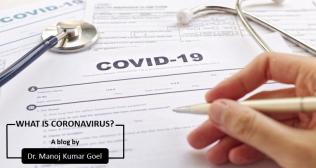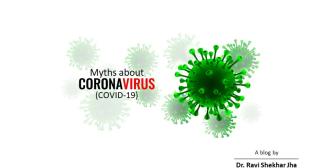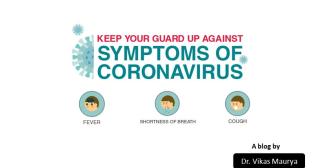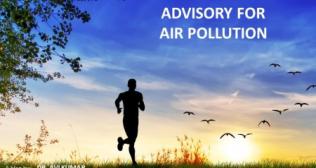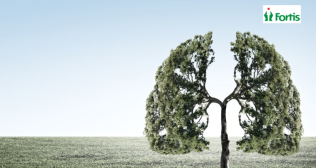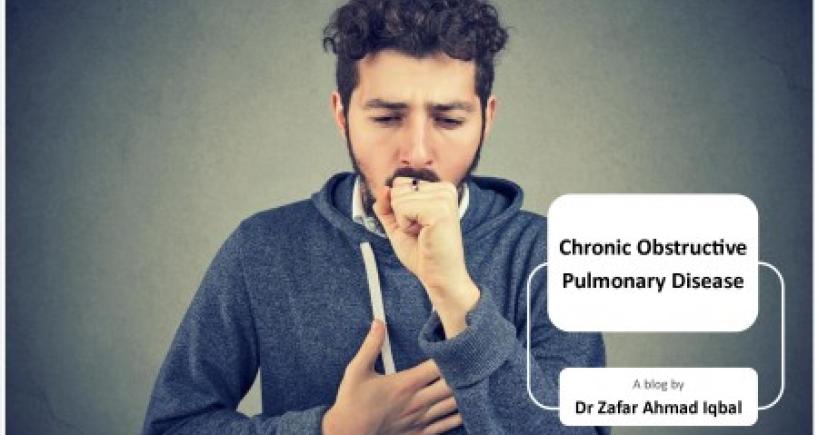
Pulmonology
Chronic Obstructive Pulmonary Disease (Copd)
admin Nov 08, 2023

COPD is the term used to describe chronic lung conditions that causes shortness of breath by blocking air sacs and the tubes which facilitate air to come in and out. With time the blockage becomes permanent.
In chronic bronchitis, you tend to have regular cough, commonly called the smoker's cough. There is production of mucus due to the ongoing inflammation in breathing tubes. Eventually, permanent damage occurs which doesn't allow in as much oxygen as you need. Obstruction of the airways, especially with mucus, increases the likelihood of repeated infections.
In emphysema, the walls of your lungs become lax and eventually get destroyed and therefore breathing out is incomplete. Air becomes "trapped" in the alveoli and reduces the ability of the lung to shrink during exhalation. This trapped air ultimately makes the oxygen transport inadequate. People with COPD can have either or both of these diseases.
When COPD is severe, shortness of breath and other symptoms can get in the way of doing even the most basic tasks, such as doing light housework, taking a walk, and even bathing and getting dressed.
Signs and Symptoms
- Long episodes of cough, often with phlegm that may be hard to "bring up".
- Feeling like you can’t breath
- Shortness of breath, especially during exercise.
- Production of increased mucus
- Difficulty exhaling Wheezing
- Frequent respiratory infections
Risk Factors
- Smoking -- the longer you smoke and the more packs of cigarettes you smoke, the higher your risk. Smoking is responsible for 90% of COPD. Although not all cigarette smokers will develop COPD, it is estimated that 20% will. Smokers with COPD have higher death rates than nonsmokers with COPD. Second hand smoking is also harmful in the same fashion. For example, if there is a smoker in the family, the other family members are also at risk.
- Genetics -- people with a rare hereditary disorder called alpha-1 anti-trypsin deficiency lack an enzyme that helps protect the lungs from damage
- Age - above 50 yrs
- Exposure to toxic chemicals such as silica or cadmium
- Working around industrial smoke, excessive dust, or other air pollutants (for example, miners, furnace workers, and grain farmers)
Diagnosis
Your doctor will listen to your chest for wheezes and decreased breath sounds. He or she will also look for signs that you are having trouble breathing, like flaring of your nostrils and contracting of the muscles between your ribs.- The most common test needed is spirometery, where you blow into a tube connected to a machine called a spirometer. The spirometer measures how much air you have in your lungs, and can help detect COPD before your symptoms become obvious.
- A chest x-ray to look for over-expanded areas in the lungs; a CT scan to check the severity of your COPD; an examination of your sputum; or a blood test to measure the levels of oxygen and carbon dioxide in your blood.
Preventive Care
- If you smoke, quit.
- If you have COPD, avoiding respiratory infections is very important. You should receive an influenza vaccine (flu shot) each year and a pneumococcal vaccine to protect you from pneumonia
- Eating foods rich in antioxidants, magnesium and other minerals, and omega-3 fatty acids may help lower your risk
Treatment Approach
- Quitting smoking is crucial for the treatment and prognosis.
- Diet - People with COPD often have low levels of antioxidants and certain minerals including vitamins A, C, and E, potassium, magnesium, selenium, and zinc are associated with having COPD and may contribute to poor lung function. Eating lots of fruits, vegetables, and whole grains is recommended to get the required nutrients.
- Exercise - By strengthening your legs and arms and improving endurance, you may be able to breathe better. Walking is a good exercise to develop endurance.
- Breathing - There are breathing exercises -- for example, a pursed lip technique, breathing from the diaphragm, or using a breathing device called a spirometer twice a day -- that may help improve lung function.
- Medications - There are different categories of medicines for COPD mainly given through the inhalational route for better efficacy and safety.
- Surgery -- Lung reduction surgery is a procedure where a surgeon removes damaged parts of your lung to create more space for the remaining lung to work better. A lung transplant is sometimes done for severe cases of COPD.
- Home oxygen -- may be needed when there is chronic severe COPD
- Noninvasive respirators -- these are devices which help support your breathing and offload your tiring muscles in chronic severe COPD and when it worsens acutely.
- If you have COPD, you are prone to respiratory infections, so a flu shot every year and a pneumococcal vaccine once in your lifetime is recommended.







